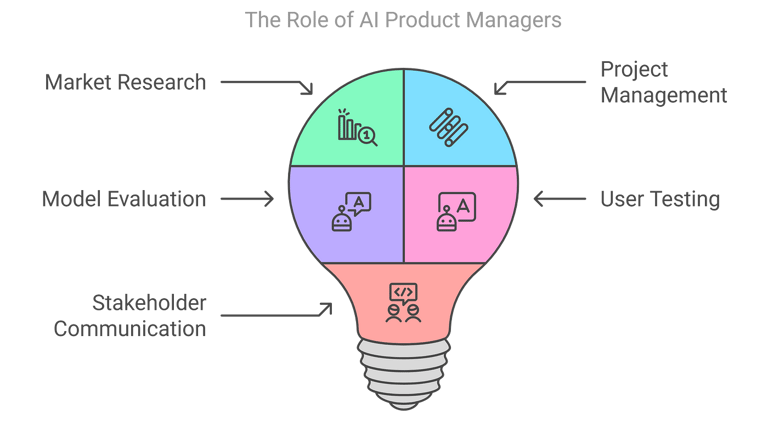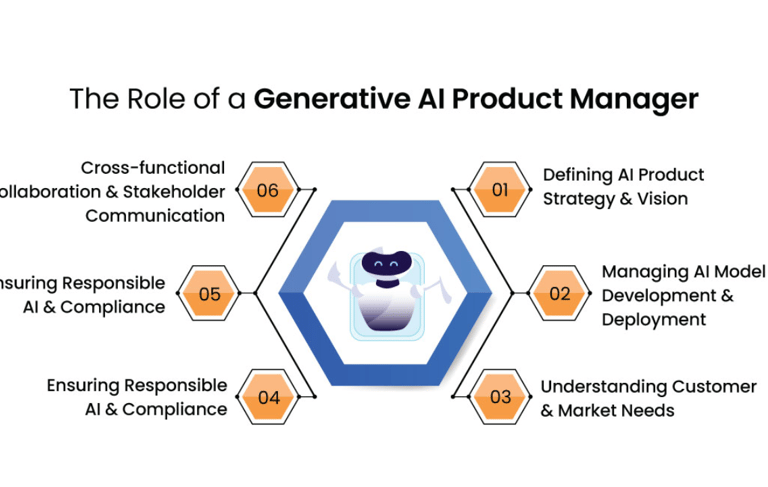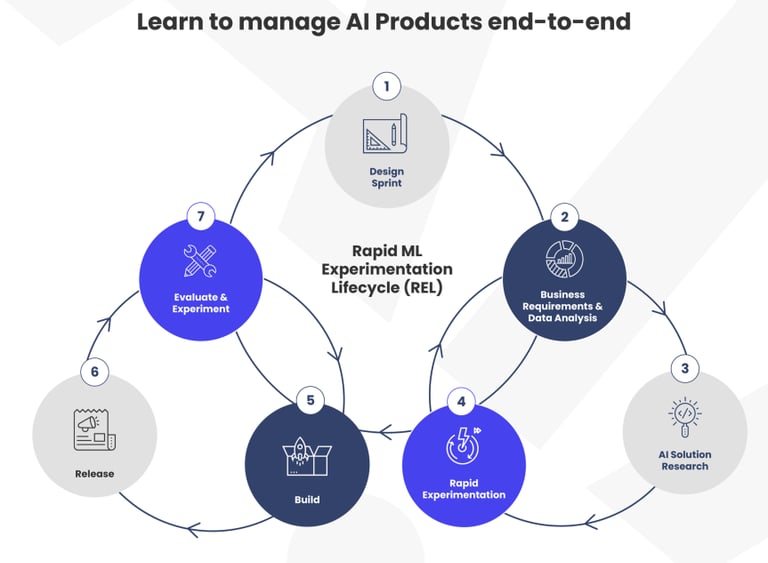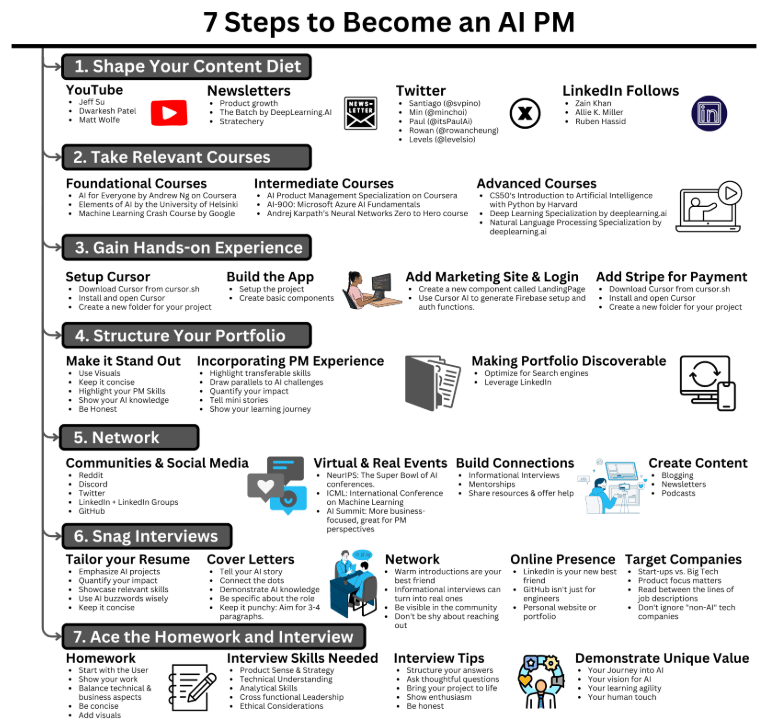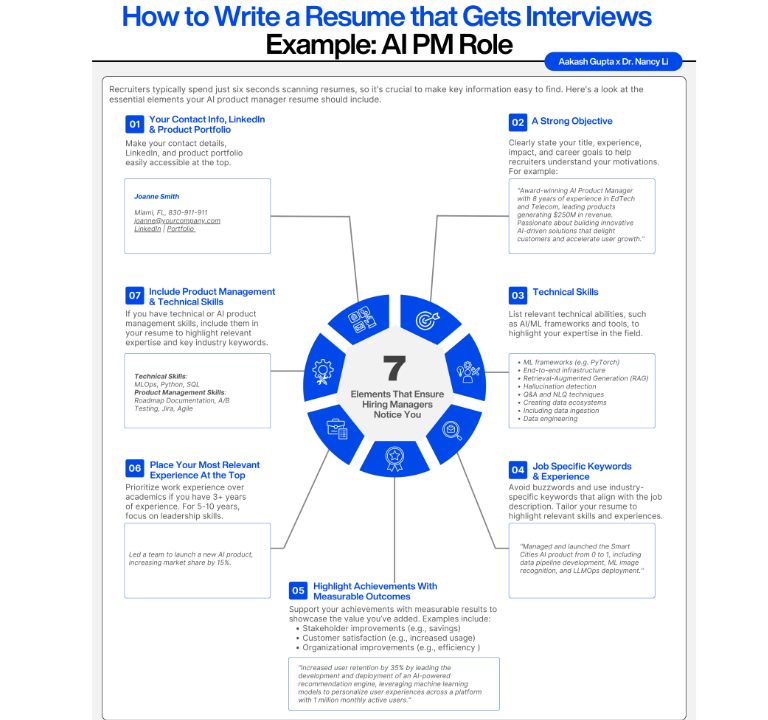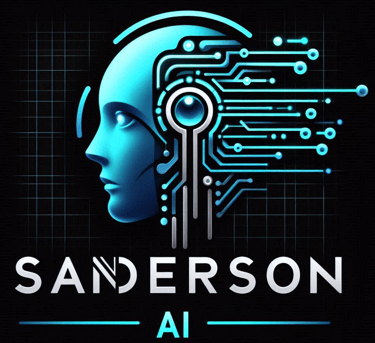AI Product Management: What I think Is Helpful To Know
AI is changing how businesses operate. Tools like ChatGPT, DeepSeek, Gemini, Mistral, and Claude are making AI more accessible, and companies are rushing to build AI solutions. As a result, AI Product Management is now one of the most sought-after roles. But what exactly does this role involve, and why is it worth building the right skills for it?
AI Product Managers need more than traditional product skills. They need to understand AI tech, make decisions based on data, and consider ethical risks. Their job is to connect engineering teams with business needs, making sure AI tools deliver real, measurable value.
If you're a product manager, developer, data scientist, or someone who wants to stay relevant in tech, learning AI product management makes sense. Understanding machine learning (ML) workflows, AI tools, and responsible practices will give you an edge. In this guide, I’ve broken down the skills, tools, and practical steps you’ll need to move into this role.
Who is an AI Product Manager?
An AI Product Manager focuses on building and leading AI-powered products. Unlike traditional product managers, AI PMs work at the point where artificial intelligence, data science, and business goals meet.
This role goes beyond managing sprints or writing roadmaps. It requires understanding AI’s strengths, limitations, and potential biases. You work closely with data scientists, ML engineers, and business teams to build AI models that solve real problems. You also deal with unique issues like data privacy, model transparency, and keeping AI models updated and accurate.
AI Product Managers are in demand in industries like healthcare, finance, retail, and tech. From fraud detection to generative AI apps, these managers turn complex AI capabilities into useful products. Anyone aiming to get into this role should build up core AI knowledge, understand ML pipelines, and learn about responsible and ethical AI practices.
What is AI Product Management?
AI Product Management means leading AI-based products from idea to launch, making sure they solve the right problems, are technically sound, and are user-friendly.
AI PMs need to understand how machine learning models are trained, how data pipelines work, and how to manage AI-specific risks. AI products are different because they improve over time as new data is collected. So the job includes making ongoing updates, using performance metrics, and ensuring the models are working fairly and as expected.
AI PMs also work with many different teams — data scientists, developers, domain experts — and they must make sure the product stays ethical and within regulatory boundaries. If you're aiming to become one, learning about Agile methods, AI ethics, and real-world AI development is key. Certification and hands-on experience will help you build confidence and credibility.
What Does an AI Product Manager Do?
AI Product Managers connect AI technology with business strategy. Like regular PMs, they manage product development, but they also understand how AI works and where it adds the most value.
They find opportunities where AI can help — like speeding up processes or improving user experience — and work with data scientists and engineers to make those ideas happen. They also help set realistic expectations and define KPIs to track model performance.
Another big part of the job is making sure the AI is ethical — that it doesn’t reinforce bias, that it explains its decisions, and that it respects user data. AI PMs must stay informed about tech trends, learn new tools, and make sure their products stay competitive in fast-moving industries.
This role is growing fast. To get started, focus on understanding how data and models work, and improve your ability to work across teams and clearly explain technical topics.
How to Become an AI Product Manager
The above image is a good quick guide but to step into AI Product Management, you’ll need a mix of product skills, technical knowledge, and business insight. Here’s how to get there below is a more in depth 1-8 step guide:
1. Learn the Basics of AI and Machine Learning
You don’t need to code models, but you should understand how they work. Learn about supervised learning, neural networks, model training, and the overall AI development cycle.
Good starting points:
Google’s Machine Learning Crash Course (Free)
Agilemania’s AI Product Management Course
YouTube content on AI for Product Managers
Knowing these basics helps you talk confidently with engineers and make better product choices.
2. Get Practical AI Experience
Reading is good, but doing is better. Work on small projects or join platforms like Kaggle to learn how models are built, trained, and improved. You can also:
Build apps using APIs from OpenAI or Google
Contribute to open-source AI projects
Volunteer with startups working on AI
This gives you hands-on experience and makes your skills easier to show.
3. Build AI-Specific Product Management Skills
To lead AI projects, you need to:
Work with data (collection, cleaning, analysis)
Manage model lifecycles (training, updates, monitoring)
Know how to reduce bias and build ethical AI
Work closely with technical and business teams
Courses in Agile, Lean AI, and ethics will give you a good foundation.
4. Build Your AI Network
Surrounding yourself with AI professionals helps. You’ll learn from others and stay up to date.
Follow AI PMs on LinkedIn
Join AI groups on Slack, Discord, and Reddit
Attend meetups, hackathons, and events
Join bootcamps that include mentorship
Connections often lead to job opportunities and better insights.
5. Do AI Projects on the Side
Build your portfolio with small projects. Ideas include:
Resume scanner that uses AI to match job seekers
AI tool that reads customer reviews and shows sentiment
Content recommender for articles or products
Share your work on LinkedIn or Medium. It builds your visibility and shows you know how to apply AI.
6. Update Your Resume for AI Roles
Make sure your CV reflects your AI experience. Include:
AI projects and collaborations
Work with data scientists or ML tools
Keywords like machine learning, data pipelines, model evaluation, and AI ethics
Even if you haven’t worked in AI full-time, highlight any related experience.
7. Get Certified in AI Product Management
Certifications show that you’ve studied the space. They can give you structure and help hiring managers trust your knowledge. Some options:
Udacity AI Product Manager Nanodegree
Agilemania’s AI PM Certification
Product School’s AI for Product Managers
Coursera’s Deep Learning Specialization
ICP-FAI (Foundations of AI)
These show you’re serious and give you language to talk about AI confidently.
8. Stay Current on AI Trends
AI evolves fast. Keep up by following blogs, podcasts, and research. Topics to track:
Generative AI tools like ChatGPT
Business automation with AI
AI regulation and ethics
Edge AI and federated learning
Being informed helps you make better product decisions and plan ahead.
What AI Product Manager Jobs Are Out There?
AI Product Management offers lots of growth. Here’s what a typical career path might look like in my view:
Career Path
Entry-Level: Associate Product Manager or Product Owner (AI focus)
Mid-Level: AI PM or ML PM, with a focus on strategy and business impact
Senior-Level: Senior AI PM or Head of AI Products
Executive-Level: VP of AI Products or Chief AI Officer (CAIO)
Related Roles
Machine Learning Product Manager
Data Science Product Manager
Analytics Product Manager
AI Product Owner (Agile teams)
Data Product Manager (data pipelines and ML inputs)
You can move between these roles depending on your skills and the products you're working on.
Key Takeaways
If you want to move into AI Product Management, focus on:
Learning core AI concepts and ML workflows
Getting hands-on with real projects
Building a network of AI professionals
Highlighting AI work on your CV
Earning certifications to support your experience
This is a fast-growing field. The sooner you start learning and applying these skills, the quicker you can stand out as someone who understands both AI and product strategy.
Final Note
I hope you found the above insights valuable, especially if you're involved in—or looking to explore—the world of AI product management. Building AI-driven solutions requires a balance of technical precision, user-centric design, and strategic vision, all within a rapidly evolving landscape. I’m constantly refining my understanding and approach, and I’d love to connect with others who share a passion for AI innovation. Whether you’re interested in exchanging ideas, discussing emerging trends, or collaborating on forward-thinking projects, feel free to reach out!
Thanks
